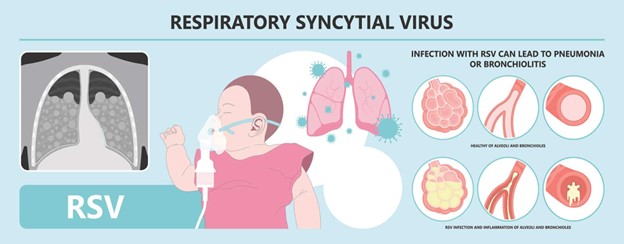A nurse is assisting with the plan of care for a 10-month-old infant who has HIV. Which of the following interventions should the nurse include in the plan?
Monitor the infant's lymphocyte count.
Educate the infant's guardians about exchange transfusions.
Administer granulocyte colony-stimulating factor.
Initiate droplet precautions.
The Correct Answer is A
Monitoring the infant's lymphocyte count is important in evaluating the immune function of the infant. HIV primarily affects the immune system, including lymphocytes. Monitoring the lymphocyte count helps assess the progression of the disease and the effectiveness of treatment.
Exchange transfusions are not typically used in the management of HIV. They are primarily performed in conditions like severe neonatal jaundice or blood disorders, but not for the treatment of HIV.
Granulocyte colony-stimulating factor (G-CSF) is a medication used to stimulate the production of white blood cells called granulocytes. While G-CSF can be used in certain situations, such as to counteract the side effects of certain chemotherapy drugs, it is not a standard treatment for HIV in infants.
Droplet precautions are typically implemented for infectious diseases that spread through respiratory droplets, such as influenza or respiratory syncytial virus (RSV). HIV does not spread through respiratory droplets, so initiating droplet precautions would not be necessary in the care of an infant with HIV.
Nursing Test Bank
Naxlex Comprehensive Predictor Exams
Related Questions
Correct Answer is D
Explanation
The APN, also known as a nurse practitioner or clinical nurse specialist, has advanced knowledge and expertise in pharmacology and medication management. They are trained to assess medication interactions, evaluate potential risks, and provide guidance to ensure safe and effective medication use.
The other members of the interdisciplinary team listed are not specifically trained to address medication interactions:
- Social worker: Social workers focus on addressing psychosocial aspects of care, such as emotional support, counseling, and resource coordination. While they may provide valuable assistance in various areas of the client's care, they typically do not have specialized knowledge in medication interactions.
- Patient care technician: Patient care technicians, also known as nursing assistants or certified nursing assistants, provide direct patient care under the supervision of nurses. They do not typically have the training or authority to address medication interactions.
- Psychologist: Psychologists specialize in the assessment, diagnosis, and treatment of mental and emotional health concerns. While they may be involved in the client's overall care, including medication management for mental health conditions, their expertise lies primarily in psychological assessment and therapy rather than medication interactions.
Correct Answer is A
Explanation
RSV is primarily transmitted through respiratory droplets when an infected person coughs or sneezes. To prevent the spread of RSV, it is important to implement droplet precautions. These precautions include wearing a mask and ensuring proper hand hygiene when in contact with the preschooler.
This helps minimize the risk of transmitting the virus to other individuals. Requesting an x-ray of the preschooler's neck is not indicated for RSV. RSV primarily affects the respiratory system, and an x-ray of the neck would not provide relevant information for the diagnosis or management of RSV.
Monitoring the preschooler's urine for protein is not specifically related to RSV. Proteinuria is not a typical manifestation or complication of RSV. Monitoring urine for protein is more relevant in conditions such as kidney disease or urinary tract infections.
Administering fluconazole to the preschooler is not indicated for RSV. Fluconazole is an antifungal medication used to treat fungal infections, and it would not be effective against a viral infection like RSV.

Whether you are a student looking to ace your exams or a practicing nurse seeking to enhance your expertise , our nursing education contents will empower you with the confidence and competence to make a difference in the lives of patients and become a respected leader in the healthcare field.
Visit Naxlex, invest in your future and unlock endless possibilities with our unparalleled nursing education contents today
Report Wrong Answer on the Current Question
Do you disagree with the answer? If yes, what is your expected answer? Explain.
Kindly be descriptive with the issue you are facing.
